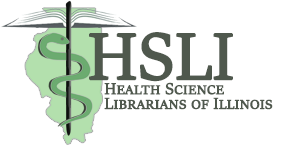(via Elena Rodriguez, College of Charleston)
I am excited to invite chapter proposals for Teaching the Whole Student: Compassionate Instruction in the Academic Library, an edited volume to be published by ACRL.
About the book:
Compassion at its simplest definition is the “sympathetic consciousness of others’ distress together with a desire to alleviate it” (Merriam-Webster). The cognitive, affective, and motivational tenants associated with compassion (Jazaieri 2018) relate to the concept of whole-person care, a social work practice where a person’s well-being is assessed in “the interplay among physical, environmental, behavioral, psychological, economic, and social factors” (NASW Standards, 1992). Compassionate instruction, to that end, creates space in the classroom for the “whole student” to be seen and supported. It encourages their success and well-being by taking into consideration that there are both known and unknown challenges that affect and impact their ability to succeed, and it helps remove barriers, so students do not face challenges in a silo.
Teaching to the Whole Student: Compassionate Instruction in the Academic Library is not a reference on how librarians can become social workers. Instead, it is a resource to learn how to be more intentional in the impactful ways compassion can be incorporated into instruction practices to promote whole student care, support, and success. While librarians are not traditionally trained to provide the specialized services and interventions social workers and mental health providers are equipped to offer, each of these professions are grounded in the concept of responding to the needs of the individual. Academic librarians are uniquely poised to lead campus communities in compassionate instruction practices that focus on the whole student. We see a diverse student population daily across all disciplines, we work closely with faculty, and we are frequent collaborators with campus groups and services. Librarians are natural bridges to information and resources; engaging with the whole student allows us to be more thorough in meeting them where they are and getting them to what they need. Integrating a compassionate instruction approach to one shots, credit-bearing instruction, and beyond, librarians are supporting student success by building community and developing relationships that allow for students to have the agency to ask for help – whether that be academically or otherwise.
Call for Chapter Proposals
Proposals are invited from individuals with experience teaching information literacy or credit-bearing instruction through an academic library. Additionally, staffers who provide information services (e.g. reference, walk-up support, programming) in an academic library and individuals who work in a social work program in higher ed are also encouraged to submit proposals.
Case studies and exploratory research are invited and welcome, as are essays that incorporate scholarly writing with personal narratives. Final chapters should be between 4,000-5,000 words. Please see below for each proposed section, and check the full call for proposals for specific chapter topic ideas.
Section 1: Framework for Compassion
Chapters in this section will set a foundation for why compassion and empathy are necessary and reflect on how to foster and encourage these practices.
Section 2: Compassionate Practices in the One-Shot
Chapters in this section will reflect on how librarians can incorporate compassion and/or empathy within the frequently utilized one-shot session.
Section 3: Compassionate Practices in Credit-Bearing Instruction
Chapters in this section will focus on how librarians who teach credit-bearing courses have and can incorporate compassion and/or empathy into their instruction practices.
Section 4: Compassionate Practices in the Library
Chapters in this section will consider compassion in “non-traditional” instruction spaces and approaches.
Proposal Instructions:
Please submit your proposals using the CFP Google Form by Wednesday, September 15, 2023. The proposal should include all contributing authors, a working title, 3-5 keywords describing your proposed topic, a description of your proposed chapter that does not exceed 500 words, and two to three learning objectives or outcomes for your proposed chapter.
Authors will be notified of acceptance by October 31, 2023. See below for the full project timeline. Please e-mail Elena Rodriguez at compassionateinstructionacrl@gmail.com with any questions.
Project timeline:
- CFP closes September 15, 2023
- Authors notified of acceptance by October 31, 2023
- Chapter outlines sent to editor by December 31, 2023
- First drafts due March 1, 2024
- Draft reviews completed and feedback provided to authors around April 30, 2024
- Final drafts due June 1, 2024
- Publication anticipated fall 2025
